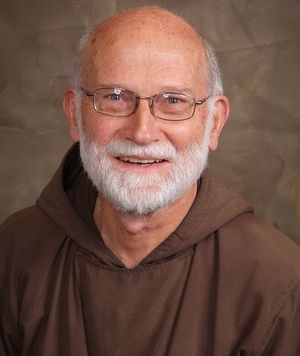
The first Capuchin Constitutions in 1536 gave very clear and concrete direction to the friars concerning the establishment of their houses.
The friaries were to be simple and austere, and they were to be built on the edges of towns and villages. This location put the friars close enough to minister to the people in the city and parish, but distant enough to have the necessary space and quiet for fraternal life and contemplative prayer. Thus, the Capuchins could enter fully into the service of God’s people, yet guard and nurture their own particular gift of religious life in the church.
The location of the friars on the edge of civil and parochial life provides a good metaphor for reflecting on the place and perspective of my Capuchin priesthood in the church.
The place from which I go about my mission in the church is the Capuchin brotherhood, the community I call my “fraternity.” We friars live, pray, eat and play together; we minister “two by two” where possible; we share sorrows and joys as companions on the journey of life. In the midst of cultural individualism, fraternity gives witness to cooperation over competition, to the common good over the private. When it works well, our brotherhood of young and old, healthy and sick, conservative and liberal _ imperfect brothers all striving to build unity _ demonstrates that reconciliation and peace are possible in the church and world.
In the practical exercise of my ministry, there are conflicts between ministry and fraternity: between a parish meeting and a simultaneous Capuchin gathering, between my presiding role at parish liturgy and my prayer leadership in the fraternity, between being the spiritual head of the local church and making the Capuchin community my primary family. But consecrated life is my “first mission” in the church (Vita Consecrata, #72) and our brotherhood is the “primary apostolate” for Capuchins (Capuchin Constitutions, #145), and so I choose the fraternal edge of the conflict.
Giving priority to brotherhood not only safeguards my life of fraternity, but also strengthens my ability to “brother” those I serve in ministry. Schooled in mutuality, I can resist superiority and privilege, and choose to lead and teach and heal with equality, humility and simplicity. Nourished by fraternal communion, I can better brother those who are difficult to love and give witness and power to my ultimate gifts: love, unity and peace.
Legend has it that St. Bonaventure, the great church theologian and Franciscan general minister of the Order, was washing dishes in the friary when he got the news of his receiving the cardinal’s hat. Capuchins — and other religious priests or bishops — who wash dishes with their brothers at home and then sweep the floor with their fellow parishioners after a parish carnival preach more than a thousand words about the holiness of the margins of the church.
In my Capuchin life, then, I am a brother and a priest. I became a Capuchin brother through profession of vows in 1968, and didn’t cease being a brother when I was ordained to the priesthood in 1973. Rather, I brought to the ministerial priesthood the charism of my Capuchin brotherhood, especially my minority and fraternity, to “father” as a “brother.” When you address me, I’ll answer to both “Father Bill” and “Brother Bill.” But in truth, I think “brother” keeps me closer to the edge of the church where I live.
(In his first 25 years as a priest, Bro. Bill served the Order and the Church as a seminary teacher, novice master, provincial councilor, local superior, homeless shelter director, inner-city pastor, and vocation director. Then in September of 1998, he became a foreign missionary at Yecora in a remote mountainous region of northern Mexico, where he assisted friars from the Capuchins Province of Western America both in evangelizing the local people and in helping form some as new Capuchin brothers).



